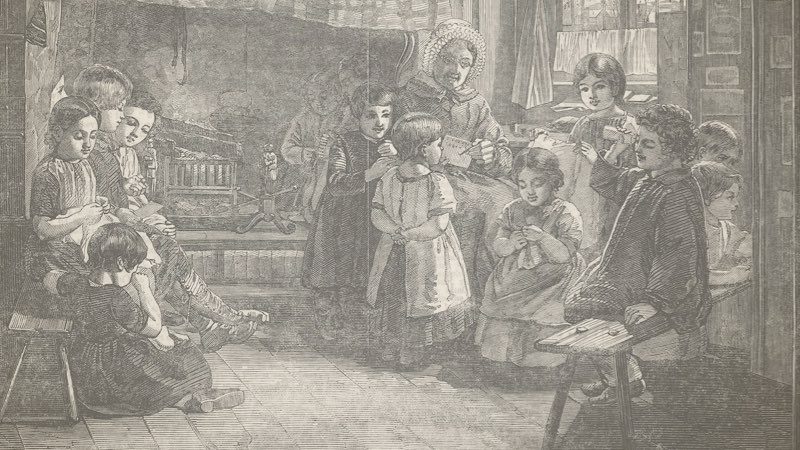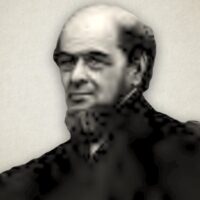
The Life And Death Of Mrs. Septimus Sears
The Sower 1892:
Death And Funeral Of Mrs. Septimus Sears
After a long illness, Mrs. Sears, the widow of the late beloved Editor of the Sower and Gleaner, was called to her eternal rest at 10 p.m., Friday, March 11th, at the age of 80 years, quietly breathing her last in her sleep. She had been gradually sinking for several weeks, anticipating and longing for her change. A few days before her death, she said to a dear friend who visited her, “My prayer is, “Come, Lord Jesus”; and not only so, I can say, “Come quickly.”
Another friend of Mrs. Sears says:—
“I went one evening to see Mrs. Sears. She seemed to be dosing. Presently she opened her eyes, and I said, “Do you know me?” She replied, “Yes; how very kind of you to come and see me—everybody is so kind to me—and how kind the Lord is to me; I have every comfort, while so many are so acutely feeling this severe weather.” I said, “You will soon be out of the cold, and with your dear Lord.” “Yes,” she replied, “very soon, now.” I said, “Do you think we shall know each other there?” She said, “Yes, I feel sure we shall.” I said, “You will know your dear husband and all your dear friends.” She said, ”I feel sure I shall know all my loved ones.” She seemed satisfied about this. On my coming away and wishing her good-night, she said, “God bless you!”
On going in an evening or two before she died, she seemed rather unconscious, but presently she roused herself a little, and I said to her, “Do you know me?’’ “Yes” she replied, ”I know you, and I know Jesus.”
March 6th, another friend went to see her, and he said, “You will soon be landed now.” She said, “Glory! glory! Come, Lord Jesus.” He quoted the lines—
“But thine will be a blessed sleep,
From which none ever wake to weep.”
She raised her hand, and said, ”Beautiful, beautiful! Glory, glory!”
On Tuesday night, the 8th, she said, “Precious Jesus! Ah, His great love—His great mercy.” Frequently when we went in she said, “Oh, that I may still have grace to behold the crucified One, then I shall be able to behold the glorified One.” She often repeated these lines:—
” A hand almighty to defend,
An ear for every call,
An honoured life, a peaceful end,
And heaven to crown it all.
“I would be Thine; oh, take my heart,
And fill it with Thy love;
Thy sacred image, Lord, impart,
And seal it from above.”
Frequently, when she could not talk much, she seemed in prayer, raising her hands up and down with a sweet, satisfied kind of smile on her face. She said her nightly lines were,
“If I should die before I wake,
My sins forgive, my soul, Lord, take.”
The funeral took place on Tuesday, March 15th. The day being very wet and unfavourable, many attached friends of Mrs. Sears could not be present, but a tolerable number were assembled to pay the last tribute of affection to one they highly esteemed and valued. Her remains were borne to the chapel where Mr. Sears ministered the Word for so many years. Mr. Hull—who had promised the deceased some years ago, that, if he was spared, and could possibly do so, he would officiate at her funeral service—opened the service by reading the thirteenth verse of Rev. 14, and giving out the 721st, hymn, (Clifton selection), “How blest the righteous when he dies,” &c.
After engaging in prayer, he read 1 Thess. 4:13-18; Rev. 7:9-17, and addressed those assembled on the blessedness of being found in the Lord, living and dying; congratulating those who had received the Spirit’s witness of their sonship, and encouraging those who were seeking such evidence; at the same time warning these who were careless about their state, and those who might be trying to satisfy themselves with self-persuasion instead of the divine testimony of the Spirit in the heart. He spoke of conversations he had held with, and letters he had received from Mrs. Sears, which proved her to be one who hungered and thirsted for Christ, and that she could only be satisfied as she received fresh supplies of grace from Him, remarking that all true believers have this mark, they are receivers.
He also referred to the pleasure he had felt in hearing many young people he had met with in his travels testify that the good work of grace was begun in them while attending Mrs. Sears’ school, her Scriptural instructions and counsels being owned of God to their enlightenment and profit. Thus the Word of the Lord, sown by her, had brought forth precious fruit in the cases of some now living, and also of some who have gone to glory.
At the conclusion of Mr. Hull’s address, the 427th hymn (Clifton selection) was sung, and Mr. W. Wilson engaged in fervent prayer. The coffin was then borne to the family vault in the Chapel graveyard, where Mr. Hull said, that, while the infidel and the sceptic could see nothing but darkness in the grave and beyond, he thanked God that the believer looked through the grave to the resurrection morn, anticipating with joy that time when he shall be altogether like his Lord.
Mr. Wilson then pronounced the benediction, which brought the solemn service to a close.
Septimus Sears (1819-1877) was a Strict and Particular Baptist preacher and writer. In 1842, he was appointed pastor of the church meeting at the Clifton Strict Baptist Chapel, Bedfordshire, a position he held for thirty-five years. He was also editor of two magazines, “The Little Gleaner” and “The Sower”. George Ella wrote of him:
“Septimus Sears, renowned in England as one of the country’s most outstanding pastors and preachers, started his ministry at the age of 20 before taking over Clifton Strict Baptist Church, Bedfordshire which he shepherded from 1842 to his death in 1877. Sears suffered all his life from severe heart trouble and was burdened by long periods of paralysis and typhus. His neck bones were so deformed that he had to wear an iron collar to support his head. Nevertheless, he preached three times on the Lord’s Day and often during the week. He edited two Christian magazines, The Little Gleaner and The Sower, and published many sermons besides a number of popular hymnbooks and poetical works. The invalid pastor-poet established a school for poor children, founded organisations to care for orphans and the needy and erected homes for widows and the aged. He believed that gospel witness should be social and practical as well as spiritual. His labours were immense in the Lord and certainly not in vain.”



